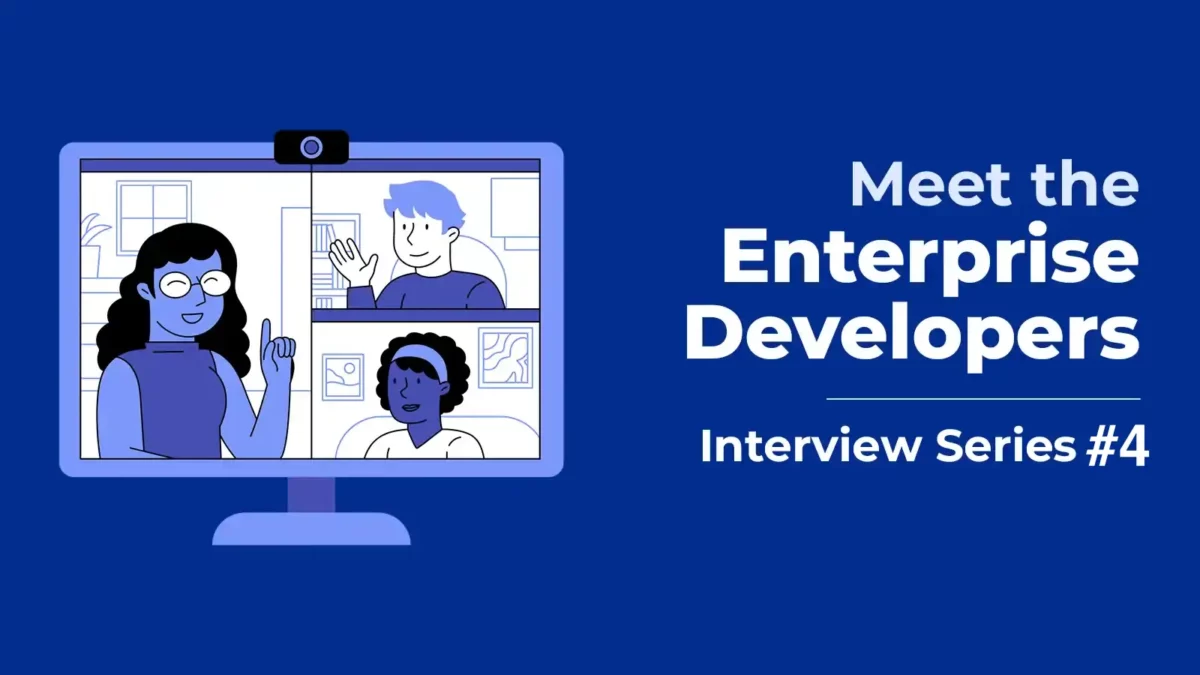Enterprise developers play a critical role in driving innovation, maintaining security, and ensuring the smooth operation of large-scale IT systems within organisations. Despite their importance, we have seen a noticeable decline in the number of enterprise developers across various domains. Particularly within the data analytics and business intelligence sectors, this drop is significant, decreasing from approximately 20% last year to around 14% this year (source: Q1 2024 Pulse Report).
In our ongoing Enterprise Developer Series, we’re striving to provide insights from professionals in the field. Our latest interviewee, who wishes to remain anonymous, will be referred to as Dev C. Dev C. shares their experiences and perspectives on working as an enterprise software developer at Oracle, offering valuable insights into the benefits, challenges, and evolving landscape of the industry.
Q. Can you briefly describe your Job as an Enterprise Software Developer?
Dev C. I work in Oracle Cloud Infrastructure – Database as a Service team where we get to work in developing many cloud related services and platforms that help customers.
Q. What are some of the challenges and benefits of working at a large company compared to a start-up?
Dev C. I would say there are no such benefits now, earlier my answer would have been job security but recent trends have proven this wrong, one benefit could be the culture and flexibility you get at least in Oracle.
Challenges come in the form of financial increments and growth potential in some teams.
Transparency is needed
Q. If you could change one thing about how your organisation operates, what would it be?
Dev C. I would like a more transparent view about the growth of an individual rather than just be dependent on the manager and I think I would like to hire more people.
Using AI for education
Our latest Pulse Report shows that almost 55% of developers have used AI-assisted development tools for code generation tasks in the past 12 months, however, how does a company like Oracle view AI? Here is what Dev C has to say about Oracle’s policies.
Q. How is AI impacting your day-to-day life? Is there a policy regarding the use of AI tools in your company?
Dev C. Yes there is. But it’s related to not using it to generate code and use company proprietary code there, we can use it to educate ourselves or learn about different services.
Dependency on tools
Q. How much of your work depends on specific tools, frameworks, programming languages or cloud providers?
Dev C. A lot of it is using different frameworks.
Skill Development
Q: How do you keep your skills and knowledge up-to-date?
Dev C. Mostly by working on different projects, but sometimes if I find something interesting out of the scope of my work, I use youtube and other learning tools to update myself.
Mutual decision making
Q: How much influence do you’ve when it comes to procuring a new tool or service to support the projects at work?
Dev C. It’s a mutual team-wide discussion.
Through our conversation with Dev C., we’ve gained a good understanding of the dynamic role enterprise developers play within large organizations like Oracle. From navigating the challenges of growth and financial increments to leveraging AI for educational purposes, their insights highlight the evolving landscape of enterprise development.
Do you want to shape the future and influence decisions of the largest tech companies? Get in our NEW Developer Nation survey! Everyone completing the survey gets instant access to our cool, virtual goody bag!
As we continue our Enterprise Developer Series, we aim to shed light on the experiences and perspectives of professionals who are shaping the future of enterprise technology. Stay tuned for more interviews and insights from the world of enterprise development.




